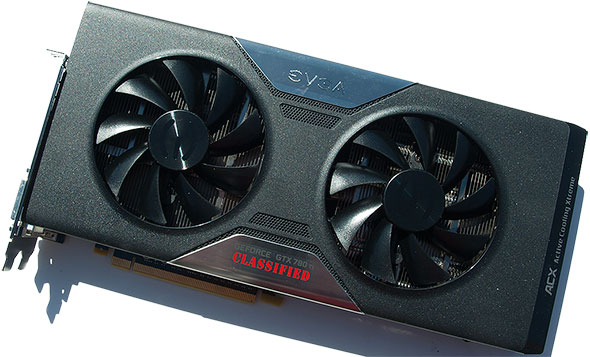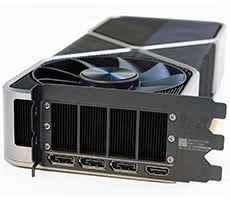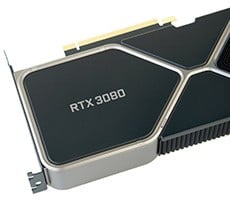GeForce GTX 780 Ti Round Up: EVGA, Gigabyte, MSI
EVGA Dual Classified with ACX Cooler
EVGA is one of NVIDIA's closest hardware partners. The company offers a wide range of GeForce 780 Ti graphics cards -- seven in all -- ranging from a reference build on up to overclocked models with pre-installed waterblocks. The card EVGA sent us for this evaluation is the Dual Classified w/ ACX Cool (03G-P4-2888-KR).


The custom ACX (Active Cooling Xtreme) cooler dominates the card's design with a large plastic shroud containing a pair of double ball bearing fans with nine blades apiece. EVGA's fans blow cool air over the large aluminum heat sinks, which offer 40 percent more volume than the reference heatsink. According to EVGA, this design results in 15 percent lower GPU temperatures, 15 percent lower memory temps, and 7 percent lower MOSFET temperatures.
Several heat pipes snake through the dual heat sinks underneath the shroud. One of EVGA's goals with the ACX cooler is to distribute airflow as evenly as possible, which is where the dual design comes into play. It also helps reduce turbulence between fans for superior cooling and less noise.

Several heat pipes snake through the dual heat sinks underneath the shroud. One of EVGA's goals with the ACX cooler is to distribute airflow as evenly as possible, which is where the dual design comes into play. It also helps reduce turbulence between fans for superior cooling and less noise.

Around back the PCB sits naked, though this is a little deceiving. Instead of installing a backplate, there's a sturdy baseplate attached to the other side of the PCB to prevent it from bending. This type of reinforcement is important as graphics cards continue to get bigger and heavier, especially on higher end models with high price tags.


While NVIDIA's reference design calls for 8-pin and 6-pin PCI-E connectors, EVGA's Dual Classified w/ ACX model requires two 8-pin connectors. If all you have are 6-pin connectors, EVGA includes a couple of 8-pin adapters.
Sitting next to the power inputs is a little white nub that allows you to switch to a secondary BIOS. This is intended to let you experiment with custom BIOSes without breaking the card if something goes awry.
Sitting next to the power inputs is a little white nub that allows you to switch to a secondary BIOS. This is intended to let you experiment with custom BIOSes without breaking the card if something goes awry.







